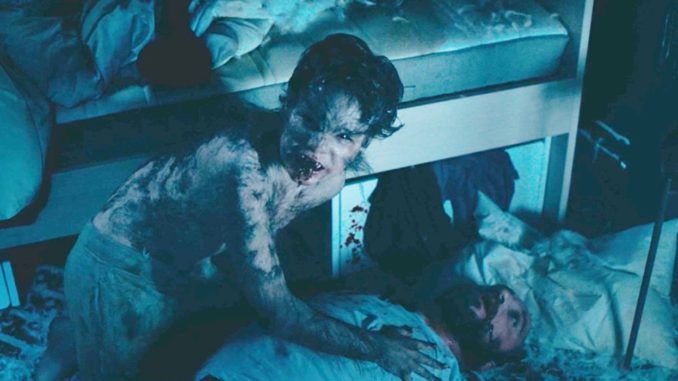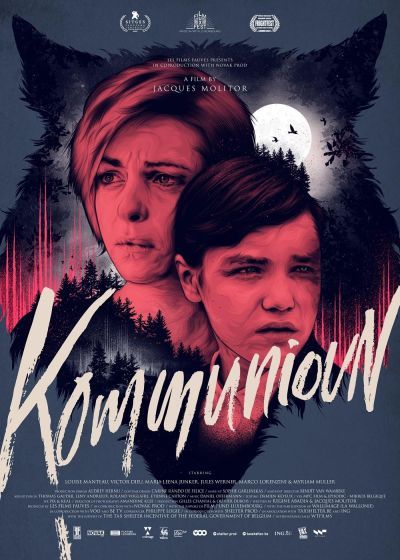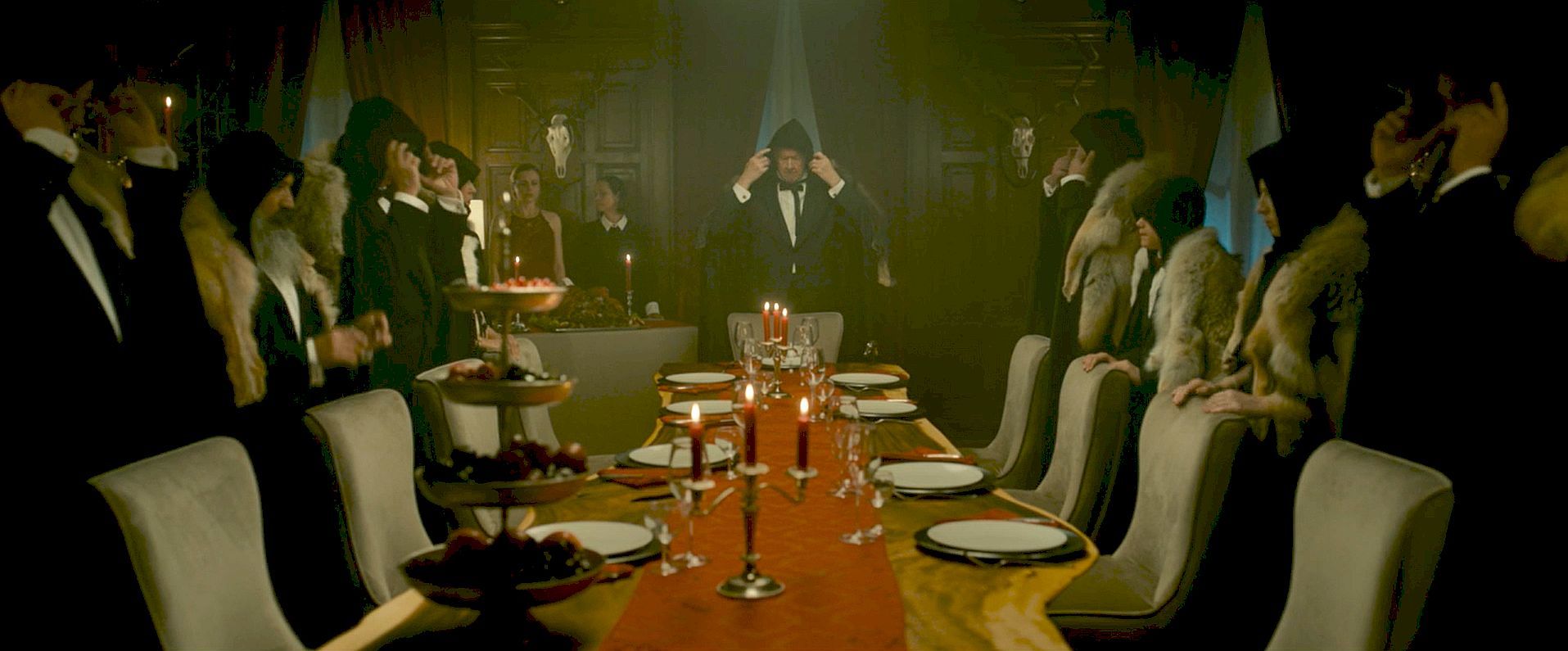
Rating: B
Dir: Jacques Molitor
Star: Louise Manteau, Victor Dieu, Marja-Leena Junker, Jules Werner
a.k.a. Kommunioun
My first awareness of Luxembourg goes back to my early teen years when Radio Luxembourg, broadcasting on 208 metres AM, was the sole available source of late-night pop music. Radio 1 stopped entirely at midnight, and the last two hours were John Peel, who was rather too punk for me. So it was down below there on the dial, hoping the atmospheric conditions in the North of Scotland were conducive to tuning in to that exotic, faraway land. Crackles, pops and interference from nearby channels was par for the course. Otherwise, my knowledge of Luxembourg was limited to remembering their football team Jeunesse Hautcharage losing 21-0 to Chelsea in the European Cup Winners’ Cup [which is quite a story in itself].
Even in my university days, with summers spent InterRailing over the continent, from Trondheim to Malaga, I always ended up bypassing Luxembourg. It is easy to miss, being roughly the size of the East Riding of Yorkshire. Though let’s be honest, there wasn’t much appeal. Moving on to a cinematic standpoint, the industry is small, as you would expect from a country whose population is only about 650,000. However, the country has been used as the location for a good number of films. Perhaps most irritatingly, Dog Soldiers was filmed in the forests of Luxembourg, presumably for tax reasons. Or perhaps the Scottish highlands were already booked that weekend. Others to be made there include An American Werewolf in Paris and Wing Commander.
 For reasons of size, there are few purely Luxembourg film, most being co-productions. Indeed, in 2006 its Oscar submission, Your Name is Justine, was disqualified because the Academy felt it wasn’t sufficiently Luxembourgish. Per Wikipedia, it was “directed by a Poland-based Venezuelan director, set in Germany and Poland, shot mostly in Polish and English but funded primarily by Luxembourg,” so I see their point. While this one is a Belgian co-production, the director was born in Luxembourg, and the bulk of the film takes place there, so I’m comfortable with it. Which is good, because there’s only one other eligible candidate, 2019’s Skin Walker. Oddly, it sounds similar: “A fragile young woman, who has tried to escape the dark past of her family, is forced to return to her family’s estate.”
For reasons of size, there are few purely Luxembourg film, most being co-productions. Indeed, in 2006 its Oscar submission, Your Name is Justine, was disqualified because the Academy felt it wasn’t sufficiently Luxembourgish. Per Wikipedia, it was “directed by a Poland-based Venezuelan director, set in Germany and Poland, shot mostly in Polish and English but funded primarily by Luxembourg,” so I see their point. While this one is a Belgian co-production, the director was born in Luxembourg, and the bulk of the film takes place there, so I’m comfortable with it. Which is good, because there’s only one other eligible candidate, 2019’s Skin Walker. Oddly, it sounds similar: “A fragile young woman, who has tried to escape the dark past of her family, is forced to return to her family’s estate.”
For Wolfkin is also about a dark past and a return to a family estate. I feel the title change is a problem, being basically a major spoiler: you can’t read it without certain expectations, and these will be met. The original title is a lot more vague considering the nature of the threat, which the film slow plays out. In particular, I don’t think the W-word is ever used, instead there being polite discussion about “hormonal imbalances that can lead to inconveniences such as hypertrichosis or slightly accentuated aggressiveness.” It begins, with a very… European sex scene, between Elaine (Manteau) and her lover, Patrick, in the woods. He seems disgruntled thereafter, enigmatically saying to her, “Why didn’t you tell me?” before vanishing into the forest.
We fast-forward a number of years, and the resulting offspring, Martin (Dieu), is acting out in violent ways, scratching and biting his Brussels classmates. At her wits end, she takes him to visit his paternal grandparents. the Urwalds, in Luxembourg, who own a large vineyard. Joseph (Lorenzini) and Adrienne (Junker) are delighted to discover the grandchild they never knew existed, though it’s quickly clear that their opinion on child-rearing differ markedly from Elaine’s. Witness the way Martin is locked up with their hunting dogs when he misbehaves: “If you want to act like a beast, then you can go eat and shit with the beasts!” Elaine is appalled, and takes her son back to Brussels. But Martin’s condition escalates, shall we say, and she has to return to her rich relatives for help.
It’s only then that the true nature of things becomes apparent. In some ways, this is worse than even she imagined, with the family literally predators in the worst way – and unlike traditional lycanthropes, they aren’t limited to hunting with fangs and claws. While it never gets in the way of the story, there might be an element of social commentary here, turning popular anarcho-communist slogan “Eat the rich” on its head, and may explain why Patrick opted out. Yet the family has its own problems, not least a high infant mortality rate, making Martin all the more valuable. Naturally, Patrick’s return plays a part in the final resolution, which proves that while you can take the wolf out of the city, that won’t necessarily take the city out of the wolf.
 The special effects here are limited in number, yet mostly effective. The shots we get of Martin’s transformation are well-executed, although the CGI wolf which shows up for the final fight could certainly have been improved. It doesn’t do a lot of damage, and there’s still a lot to enjoy in the new spin this puts on the old concept. Indeed, the film could have benefited from a bit more length, exploring the societal structure at work among the Urwalds in greater depth, as well as some of the supporting characters. There’s also a thread where Martin bites his mother, which feels as if it should lead to her transforming, yet goes nowhere, and just peters out without being of importance.
The special effects here are limited in number, yet mostly effective. The shots we get of Martin’s transformation are well-executed, although the CGI wolf which shows up for the final fight could certainly have been improved. It doesn’t do a lot of damage, and there’s still a lot to enjoy in the new spin this puts on the old concept. Indeed, the film could have benefited from a bit more length, exploring the societal structure at work among the Urwalds in greater depth, as well as some of the supporting characters. There’s also a thread where Martin bites his mother, which feels as if it should lead to her transforming, yet goes nowhere, and just peters out without being of importance.
In general though, the film does a lot of things right, and details like the different menus given to the male and female members of the Urwald clan help enrich the experience. While I’ve never been a particular fan of the shapeshifter genre, this should be counted as one of the better entries. If not quite up there in the elite like Cat People or Ginger Snaps, films which deserve and repay repeated viewing, it’s a very solid next-tier effort, which punches well above the size of the country producing it.
This review is part of our October 2024 feature, 31 More Countries of Horror.
